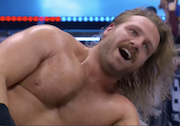|
 "I want you to stay away from it! Those mondo weirdo video guys, they've got unsavory connections, they play rough. Rougher than even Nicki Brand wants to play... You know, in Brazil, Central America, those kinds of places, making underground videos is considered a subversive act. They execute people for it. In Pittsburgh, who knows?" - Max Renn, Videodrome I picked up an interesting book called Film as a Subversive Art recently. Written by the Cinema 16 founder Amos Vogel in the 70's it is very much a book of its time, and kind of intriguing because of that. In the text he discusses a wide range of films that he designated positively as subversive to the status quo in either form or content. Some chapters seem bizarre (he discusses "Homosexuality and other variants" and even though he's positive in the Kinsey fashion, he includes beastiality and necrophilia, rarely questioning them as a practice, even that to reject them is to be 'sexually liberal' - a negative in his eyes). His hope too, that subversive cinema could have a liberatory role (rather then a way to make more cash thrilling people) seems less and less achievable, or even that it was always an impossible dream, particularly now, where truly subversive film often has the opposite affect, leaving a bitter taste in the mouth, whether that's a film of the execution of an American citizen, or a city mayor smoking crack. What I think Vogel *does* do well is pick out some films that truly do (and did) shock and change how people viewed cinema, whether that's Bunuel and Dali's experimentation in L'Age d'Or and Un Chien d'Andalou that truly did shock (but also widened and influenced the scope of the avant garde that followed), or Oshima's exploration of sexuality in In the Realm of the Senses that goes to places that modern film doesn't really explore, or Brakhage's experimental films that rip apart the idea of film itself or document aspects of life that are still unseen, albeit with 'artistry' (a change that can sometimes bed applied as a negative, as a way of making 'pretty pictures' instead of being far bolder and more direct, as has been levelled at The Act of Seeing with One's Own Eyes). What i'd like to ask is if you think it's possible for film (that *isn't* straight up filmed reality) to ever be quite as disruptive to our sensibilities, and change the way we view cinema and the potential for cinema anymore? I remember thinking that after watching An Act of Killing that this was cinema that was truly exploring something from a new perspective - I don't think this was only something felt just by me either, friends have said the same. But maybe i'm not looking in the right areas because i've not really seen anything that had that same power to shock and subvert cinema, and more importantly, our sensibilities themselves. EDIT: Also maybe the time's are different now? the blockbuster model continues growing, raking in obscene amounts of cash as the studios keep getting bigger (almost to the point where they're hardly even movie studio's anymore), making alliances with new media companies and internet providers, working hand in hand to effect legislation that favours themselves. I suppose there are outlets like Indie GoGo and Kickstarter offering potentially independent spaces where films can be funded and supported outside of the initial Hollywood system, but that doesn't get over a) what happens with wide distribution when the majority of cinemas aren't going to even look at you unless you have the backing of a studio b) the myriad of extra problems that comes from backers wanting their 'money's worth' from your film (that is dependant on even reaching the budget needed) Contrast this with the genuine crisis that was happening to the Hollywood system back in the 60's/70's where the movie studios had no loving clue what was going on, and literally handed the keys (and money) over to filmmakers that were actually exploring new things on film. Yes, we could say that it was just capitalism reinventing itself, and that the more subversive elements never actually made it into Hollywood, but there was also an explosion and awareness of the kinds of euro/'world'/underground films of the type that Vogel explores that was going on at the time, driving the agenda of film makers inside hollywood and in the counterculture. There were spaces for collectives and organisations that were driven to distribute outside of overtly capitalist concerns (the aktionist films for example, maybe mid period Godard/Dviza Vertov Collective or the eastern bloc stuff), that drove the agenda towards exploring revolutionary views on politics, on art and sexuality. Maybe i'm being naive in this and being nostalgic for something that never existed, but it seems like there was a moment where film actually could explore human experiences and insights (and better futures) in a way that didn't keep an eye on concerns about capital, morality etc. TL:DR Can films truly be subversive? Is this even possible? If yes, can you name some! harpomarxist fucked around with this message at 01:51 on Sep 16, 2014 |
|
|
|

|
| # ? May 25, 2024 10:27 |
|
I got your subversion right here. ~fin actual content: I think we've come to expect media to subvert itself and its genres rather than social matters; though I dunno if that's due to me being biased or some telling of movies in general edit: evangelion was both pretty subversive and pretty dope
|
|
|
|
Honest Thief posted:actual content: I think we've come to expect media to subvert itself and its genres rather than social matters; though I dunno if that's due to me being biased or some telling of movies in general I agree with this wholeheartedly. I used to enjoy all those films that critiqued Hollywood or were deliberately about films. Stuff like Tarantino or Super 8 being a tribute to Spielberg and all that jazz. But I've gotten tired of it. I want to see some movies about society. The Act of Killing did that for me and Calvary did that really well. So, harpomarxist, do you recommend the book? I've been wanting to read it for a long time.
|
|
|
|
Honest Thief posted:I got your subversion right here. haha, no I think you nail it Honest T, the subversion of the 60's/70's is the mainstream nowadays, at least with some films. I guess my problem is that whilst genre subversion is cool and all, it still understands itself within a framework that accepts certain limitations and rules, ie: it doesn't try hard enough. Don't get me wrong, I like genre stuff but I don't see it as having the raw power to *change* people, that either filmed reality or the avant garde films i've mentioned in my other post have. "Art is subjective" is a valid answer though, someone could find revolutionary potential in an ep of Evangelion, I just think that i'd like a lot more films that actually experimented with subversiveness rather than give it up as 'subtext' or something.
|
|
|
|
TrixRabbi posted:I agree with this wholeheartedly. I used to enjoy all those films that critiqued Hollywood or were deliberately about films. Stuff like Tarantino or Super 8 being a tribute to Spielberg and all that jazz. But I've gotten tired of it. I want to see some movies about society. The Act of Killing did that for me and Calvary did that really well. It's beyond good. It's out of print at the mo though I think and has been for a while so might be expensive. Its worth it though.
|
|
|
|
Man, all of the best books are out of print.
|
|
|
|
HUNDU THE BEAST GOD posted:Man, all of the best books are out of print. Hundu, do you have a twitter?
|
|
|
|
I do not. Nor do I have a blog at the moment.
|
|
|
|
HUNDU THE BEAST GOD posted:I do not. Nor do I have a blog at the moment. I'd ask for some way I can communicate to you as I don't have plat, and I might be able to show you where you can buy this book at an uber great price.
|
|
|
|
woodude[at]gmail[dot]com
|
|
|
|
HUNDU THE BEAST GOD posted:woodude[at]gmail[dot]com sent dude.
|
|
|
|
This is boring but I don't think film can be truly subversive because it is tied up in capitalism and just part of the larger systems of control that determine what can and can't be discussed. It's true both in the sense that business school graduates decide what movies get made and in the sense that institutions like the military and General Electric use access to their own resources to get film-makers to propagandize for them. Film is just another commodity, which is why the only boundary-challenging it's been able to do in quite some time is with regard to social issues like homophobia or family structure, because those causes don't threaten our system. Or you could make art-house films that alienate everyone except the coterie audience that already understands and agrees with them.
|
|
|
|
Jack Gladney posted:This is boring but I don't think film can be truly subversive because it is tied up in capitalism and just part of the larger systems of control that determine what can and can't be discussed. It's true both in the sense that business school graduates decide what movies get made and in the sense that institutions like the military and General Electric use access to their own resources to get film-makers to propagandize for them. That's not really true, what film executives have shown is that they're not averse to controversial subjects as long as there's money to be made*. Many of Tarantino's films, for example (especially Django Unchained) would not exist if your narrative was correct. There are many other factors that can cause self-censorship outside of the studios themselves (for example, the US military lending their equipment usually comes with guidelines on what the film's content can be). *And note that many films make money specifically because they don't present an agreeable message - The Da Vinci code is one example of this (although the phenomenon was stronger for the book release). computer parts fucked around with this message at 05:13 on Sep 15, 2014 |
|
|
|

|
|
|
|
computer parts posted:That's not really true, what film executives have shown is that they're not averse to controversial subjects as long as there's money to be made*. Many of Tarantino's films, for example (especially Django Unchained) would not exist if your narrative was correct. Exactly, there's subversive films to be made within the system. And his claim completely discredits DIY filmmaking. Stan Brakhage certainly didn't have Hollywood backing, but made incredibly subversive films that went against all societal sensibilities at the time. Or howabout a heavy pro-Socialist film like Salt of the Earth? Which did have a budget.
|
|
|
|
I think experimental film, or what is considered that, is certainly subversive. Consider filmmakers like Norman McLaren, Stan Brakhage, and Kenneth Anger. They didn't use sync sound often (or at the most, just a music track), stuck to 1.33:1 academy ratio, and let visuals tell a story or establish mood. The experimental filmmakers also have total control over the film and they're not at all aimed at a mass audience. More so, experimental film is pillaged by mainstream film for technique. The films exist as an artistic statement. All artists want to profit from their work, so money isn't exactly an object of subversion. If anything, a singular filmmaker funding a film out of their own pocket contributes to the subversive.
|
|
|
|
Kenneth Anger's Fireworks was straight up inflammatory in 1947. It had to go to the California Supreme Court before being declared not-obscene by virtue of artistic merit. If that's not subversive then I don't know what is.
|
|
|
|
TrixRabbi posted:Or howabout a heavy pro-Socialist film like Salt of the Earth? Which did have a budget. A film isn't capitalistic in process because it has a budget. The mainstream American film industry has its roots in a Fordian factory-line understanding of mass production. There's a long list of great, radical creative voices that have been stamped out by this system. If you don't play their game, or at least try to mask your subversive content, you're out.
|
|
|
|
Kull the Conqueror posted:A film isn't capitalistic in process because it has a budget. The mainstream American film industry has its roots in a Fordian factory-line understanding of mass production. There's a long list of great, radical creative voices that have been stamped out by this system. If you don't play their game, or at least try to mask your subversive content, you're out. True. It just seemed that Jack Gladney was arguing that it was impossible to truly make a subversive film because of the nature of filmmaking as a financial, and therefore inherently capitalist, endeavor. I disagree. It is possible to make a film like that within the system (Do the Right Thing comes to mind), but it's rare.
|
|
|
|
computer parts posted:That's not really true, what film executives have shown is that they're not averse to controversial subjects as long as there's money to be made*. Many of Tarantino's films, for example (especially Django Unchained) would not exist if your narrative was correct. There's a case to be made that Django Unchained is not particulary subversive, though. As Adolph Reed, Jr. argues, Django is largely filled with modern, neoliberal-era dramatic tropes: boundless love, the power of the market, slavery as an "institution of evil" (instead of as a system of labour relations), and so on. If we want an example of a truly "subversive film" in the modern era, Snowpiercer is it. Regardless of whether you read it as being explicitly anti-capitalist (or simply as a broader critique of hierarchical societies), its conclusions are very outside the norm, even for what might otherwise be considered "radical" films. Snowpiercer, however, received a relatively limited release in North America (the only theaters showing it in my fairly metropolitan city were independent ones; it only grossed something like $170,000 in its opening weekend), and I doubt many people would know what film I was talking about if I mentioned the name. Why didn't it get more exposure in the West? To continue with Jack Gladney's argument, and to draw on Adolph Reed, Jr.'s critique, the difficulty of creating or releasing an actually subversive film in the Western media is entirely because of investor expectations. A film like Django, in order to be "subversive," still has to adhere to certain ironclad rules about what actually happens within the plot (the actual economic order remains intact, with no real challenge being made to it; it's entirely about a selfish quest for personal goals; etc.) before it's likely to receive funding. This isn't really subversive. It has the patina of subversion, but its real message is still firmly embedded in the neoliberal, individualist framework. Compare it to Snowpiercer: there's no love story; it's about filthy lepers collectively engaging in a total, bloody revolution; and the conclusion is that the only way to truly proceed is to totally destroy the system you exist in. I would be flabbergasted if a film of that sort was ever made by a Western media conglomerate. The basic conclusion to draw is that there is such a thing as subversive film, but that you are unlikely to find it in the mainstream media, at least in the West. It's fair to say that this is the case for most media, however, whether it be artwork, music, or literature.
|
|
|
|
But with Django, Candieland represents the greater society just as the train in Snowpiercer does. The problem narratively is that slavery couldn't be destroyed by one man with a gun. But a plantation house could. The imagery is just as evocative, but more "realistic." Instead he destroys avatars of the system. Do the Right Thing doesn't feature racism in America being destroyed, but rather a symbol of racism. I agree, that in order to appeal to a wider audience Django Unchained had to be reigned in a bit. But it's still far more inflammatory and aggressive than the majority of mainstream films.
|
|
|
|
Why is love a neoliberal idea?
|
|
|
|
Lil Mama Im Sorry posted:Why is love a neoliberal idea? It's not that it's some exclusively neoliberal idea, but that it's a heavily emphasized, "timeless" ideal that gets plastered across seemingly all forms of neoliberal-era media. It and other, similar tropes often serve to otherwise obliterate the more complex social or political factors at work in the subject that the film is ostensibly "about." To quote from Adolph Reed, Jr.: quote:The Help could not imagine a more honest and complex view of segregationist Mississippi partly because it uses the period ultimately as a prop for human interest cliché, and Django Unchained’s absurdly ahistorical view of plantation slavery is only backdrop for the merger of spaghetti western and blaxploitation hero movie. Neither film is really about the period in which it is set. Film critic Manohla Dargis, reflecting a decade ago on what she saw as a growing Hollywood penchant for period films, observed that such films are typically “stripped of politics and historical fact…and instead will find meaning in appealing to seemingly timeless ideals and stirring scenes of love, valor and compassion” and that “the Hollywood professionals who embrace accuracy most enthusiastically nowadays are costume designers.” The complaint from Reed and Dargis here is more about period pieces, but it applies equally to wholly fantastical films. Think of something like In Time, a film with an otherwise anti-capitalist message: it's focused entirely on the personal triumphs and consuming love of the two main characters, instead of any kind of broad-based political movement.
|
|
|
|
TrixRabbi posted:But with Django, Candieland represents the greater society just as the train in Snowpiercer does. The problem narratively is that slavery couldn't be destroyed by one man with a gun. But a plantation house could. The imagery is just as evocative, but more "realistic." Instead he destroys avatars of the system. Do the Right Thing doesn't feature racism in America being destroyed, but rather a symbol of racism. On the other hand, a small group of Jewish-American guerrillas couldn't have prematurely ended WWII.
|
|
|
|
TrixRabbi posted:True. It just seemed that Jack Gladney was arguing that it was impossible to truly make a subversive film because of the nature of filmmaking as a financial, and therefore inherently capitalist, endeavor. I disagree. It is possible to make a film like that within the system (Do the Right Thing comes to mind), but it's rare. No, I just mean that production and distribution are almost totally within the power of institutions unlikely to accept anything that critiques the system that feeds them. Hollywood is a conservative institution, in that it replicates its own point of view quite ruthlessly. It looks "liberal" because decrying racism or imperialism or calling Bush dumb helps the bottom line rather than hurting it. Criticize the way NBC Universal puts the stars of its current movies on the Today Show for interviews or sends press kits to the local NBC affiliates for the 6:00 news broadcast, and you're out on your rear end. But I guess maybe I forgot about the internet and how hard the studios tried to destroy netflix with SOPA and PIPA. So maybe there will be untamed media platforms, assuming net neutrality sticks around.
|
|
|
|
Jack Gladney posted:So maybe there will be untamed media platforms, assuming net neutrality sticks around.  I mean, we can hope, but it's just another set of tools that will get (and really has already gotten) taken away from us and monetized beyond usefulness for a radical cause. I really hope this thread keeps going because I'm doing all kinds of research on American documentary in the 30s and boy howdy, was Hollywood not fond of the idea of anyone else makin' movies.
|
|
|
|
Kull the Conqueror posted:
Any good tidbits?
|
|
|
|
Hodgepodge posted:On the other hand, a small group of Jewish-American guerrillas couldn't have prematurely ended WWII. True, but I think it's that with World War II, you have faces to put the blame on. Of course it was the failure of German society, but you can place direct blame on Hitler and Goebbells and Himmler. You can directly say they helped start it all. With American Slavery it's different. There's no individuals you can point fingers at - It was everybody and it had been for generations. So by destroying one plantation you make a statement about reclaiming power and humanity for the slaves. Where Inglourious Basterds is about Jews having their revenge on the Third Reich. You can hold Jefferson Davis and Robert E. Lee responsible for being key figures in the Confederacy, but you can't blame them for creating the system of slavery itself like you can blame Hitler for the holocaust. Jack Gladney posted:No, I just mean that production and distribution are almost totally within the power of institutions unlikely to accept anything that critiques the system that feeds them. Hollywood is a conservative institution, in that it replicates its own point of view quite ruthlessly. It looks "liberal" because decrying racism or imperialism or calling Bush dumb helps the bottom line rather than hurting it. Criticize the way NBC Universal puts the stars of its current movies on the Today Show for interviews or sends press kits to the local NBC affiliates for the 6:00 news broadcast, and you're out on your rear end. Yeah, you're mostly right. But occasionally something can slip through the cracks. I point to Do the Right Thing because that is a great example of a subversive film. It truly recognizes how racism functions in society and does so without any sort of sappy or redemptive Hollywood ending. (White) critics at the time claimed Spike Lee was irresponsible in making it and feared that it would potentially spark race riots. But it was distributed by Universal Pictures. Hollywood is not the place to look for truly subversive film, but occasionally something will come out of there that is truly inflammatory. But mostly it's going to be independents that make the most subversive films. TrixRabbi fucked around with this message at 01:42 on Sep 16, 2014 |
|
|
|
Hodgepodge posted:On the other hand, a small group of Jewish-American guerrillas couldn't have prematurely ended WWII. This isn't really what happens in the movie. They kill Hitler and the Nazi high command, but there are still characters like Schultz who just love the pleasure of killing. That's the film's thesis - contrary to what TrixRabbi's reading - the Holocaust is disguised by nationalistic cinema, but both the cinema and the 'real-world' political violence are about the pleasure of power and killing. The only reason the Jewish-American guerrillas 'succeed' is because they're better at being ruthless fascists than the Nazis, who we actually see being swayed by feelings of personal remorse or abdicating their positions for personal advantage. EDIT: This is what I don't get when people talk about post-modern films (especially, like, Tarantino) and say that they're only about 'films' and not about social ethics. Films are a part of society, films are social metaphors, therefore a Tarantino movie can't not be a commentary on social ethics. Reading his films as merely commentary on film is just the jumping point, there's a lot more to dissect. K. Waste fucked around with this message at 01:51 on Sep 16, 2014 |
|
|
|
Jack Gladney posted:No, I just mean that production and distribution are almost totally within the power of institutions unlikely to accept anything that critiques the system that feeds them. Hollywood is a conservative institution, in that it replicates its own point of view quite ruthlessly. It looks "liberal" because decrying racism or imperialism or calling Bush dumb helps the bottom line rather than hurting it. Criticize the way NBC Universal puts the stars of its current movies on the Today Show for interviews or sends press kits to the local NBC affiliates for the 6:00 news broadcast, and you're out on your rear end. Hi, I amended my original post a little to reflect this as I think this really gets to the heart of the issue. The whole film industry just looks incredibly fragmented now, distributors could be flybynights created by a couple of directors looking to get a film out or they could be larger entities like (when it existed) Tartan Films (both of which I think are potential sites for subversive film to exist and flourish as they're driven less by commercial success) but the downside being the relative instability and limited scope that can come from being small fish. Plus the big studios have cottoned onto this and often have smaller offshoots that will hunt for 'indie' films (with all the perks of big studio backing like wider distribution, massive ad campaigns, the promise of a 'hands off' approach etc). What would be nice is some solidarity between the more counter-hegemonic distributors, which, yes, is a bit of a fantasy, but one I think was tentatively being created in the 60's and 70's between those that could actually distribute films amongst the counterculture. harpomarxist fucked around with this message at 02:22 on Sep 16, 2014 |
|
|
|
K. Waste posted:This isn't really what happens in the movie. They kill Hitler and the Nazi high command, but there are still characters like Schultz who just love the pleasure of killing. That's the film's thesis - contrary to what TrixRabbi's reading - the Holocaust is disguised by nationalistic cinema, but both the cinema and the 'real-world' political violence are about the pleasure of power and killing. The only reason the Jewish-American guerrillas 'succeed' is because they're better at being ruthless fascists than the Nazis, who we actually see being swayed by feelings of personal remorse or abdicating their positions for personal advantage. I think there's probably no way we're going to agree about this, but the problem with postmodernism as a meaningful response to neoliberalism is that it just points out its own complicity with capitalism and says that such self-awareness is the only real possible position. It's just admitting the game is rigged and laughing about it. Tarantino's method of pastiche just gleefully celebrates his youthful experience of watching weird old lovely movies. His movies reproduce other movies in a self-aware way that points out how exploitative capitalism has made them the tools though which we understand the world, but I don't see much beyond ironic disavowal or knowing submission to the power of mass media. I'm sympathetic to his position because I too grew up watching a lot of culture junk movies and feel the pull of--I guess--nostalgia, but I don't think you can just laugh off the loving monstrous systems of control that keep squeezing the life out of people. You can't just be complicit with neoliberalism while pointing out your own complicity because the other side has been on the march these 30 years loving us out of things like the post office, public education, and clean drinking water. If you want to see Tarantino's opposite, it's George W Bush, and he doesn't believe in irony.
|
|
|
|
Jack Gladney posted:I think there's probably no way we're going to agree about this, but the problem with postmodernism as a meaningful response to neoliberalism is that it just points out its own complicity with capitalism and says that such self-awareness is the only real possible position. It's just admitting the game is rigged and laughing about it. Tarantino's method of pastiche just gleefully celebrates his youthful experience of watching weird old lovely movies. His movies reproduce other movies in a self-aware way that points out how exploitative capitalism has made them the tools though which we understand the world, but I don't see much beyond ironic disavowal or knowing submission to the power of mass media. See, I really don't see this, especially if we consider Tarantino's filmography in light of his early works - especially Pulp Fiction and Jackie Brown - he seems to have a very genuine (though admittedly Catholic) spiritualism running throughout his oeuvre. If anything his narratives and the protagonists of both those films reflect a position where 'wry self-awareness' of one's own complicity in oppression and social complacency is not the only option, but that his characters come to realizations of salvation in ways that they can only do through their limited knowledge and wisdom, which stems from 'lovely movies.' Pulp Fiction is all about a guy who tries to re-invent his life based around a fake Bible verse he heard in a karate movie, but just because the film has a bitter humor doesn't mean we aren't supposed to take Jules' mercy seriously. The ironic commentary of scenes like that is that while neoliberal society has utterly failed these characters - leaving them behind as a powerful few amass privileges, forcing them to become more and more like stereotyped movie-like social degenerates - the backwash of popular culture has inadvertently taught the killer to follow Christ. It's not that different from Abel Ferrara, where even the individual who is the most endemic of society's failings can become redeemed. I think the more relevant critical point is that Tarantino, like Deodato before him, seriously believes that exploitation movies are populist cinema and are the last bastion of true social upheaval because they throw liberal moral platitudes out the loving window and choose to indulge in total apartness from any kind of social or cultural elitism. And even in this sense - bitter humor withstanding - this isn't that different a conclusion from a filmmaker who had the exact opposite view on exploitation cinema. Salo is filled with wry, self-aware humor, because I think Pasolini acknowledged that the most defiant film of his career was only coming to fruition as a direct response to exploitation filmmakers being inspired by him. Pasolini hated that his films only seemed to hit two audiences: cultural elitists and vulgar pornographers. So he made a tacit decision to make his next film something that he knew the vast majority of people couldn't stomach, and in the service of this also made it a pitch black comedy from the perspective of fascists looking on at their denigration of the human form. It's like... if Pasolini is Chaucer, showing us that the religious and political hypocrites are the real pornographers, then Tarantino is Boccaccio, weighing the opinion that all he's doing is feeding his audience's lurid desires and saying, "gently caress you, rear end in a top hat! These lurid desires are true! Get your filthy nose out of my book!"
|
|
|
|
K. Waste posted:I think the more relevant critical point is that Tarantino, like Deodato before him, seriously believes that exploitation movies are populist cinema and are the last bastion of true social upheaval because they throw liberal moral platitudes out the loving window and choose to indulge in total apartness from any kind of social or cultural elitism. And even in this sense - bitter humor withstanding - this isn't that different a conclusion from a filmmaker who had the exact opposite view on exploitation cinema. Salo is filled with wry, self-aware humor, because I think Pasolini acknowledged that the most defiant film of his career was only coming to fruition as a direct response to exploitation filmmakers being inspired by him. Pasolini hated that his films only seemed to hit two audiences: cultural elitists and vulgar pornographers. So he made a tacit decision to make his next film something that he knew the vast majority of people couldn't stomach, and in the service of this also made it a pitch black comedy from the perspective of fascists looking on at their denigration of the human form. I think he has a point. Pulp and exploitation films reach popular culture in a place where it feels able to express and, at best, confront transgressive ideas and desires. This is especially true for the cultural right at the moment, I think, because a lot of people who lean right hate the idea that they're racist because they genuinely hate the idea of racism and are terrified to confront it in themselves. This can easily become poisonously self-indulgent, but also allows very important negotiation of social norms to take place. The same people who love Death Wish tend to love Shaft- the same space that allows for expression of a racist power fantasy buried just far enough in the subtext enough to let someone express their fear and hatred without creating literal hate literature also allows someone with those feelings to become comfortable with the idea of black men and women as powerful and sexual beings. Especially in places like the South, where race and other issues of identity such as nationalism are so deeply entangled, a space like this is desperately needed. Even in Pulp Fiction, racism is buried just deep enough into the subtext that it isn't openly stated. When Marcellus Wallace tells Butch to "swallow his pride," doesn't explicitly or even only mean white pride, but he certainly doesn't have any illusions as to what it means to Butch for a black man to have so much power over him. And the film literally has to have Wallace be raped in order to even that score enough for Butch to save him out of respect for their shared masculine pride.
|
|
|
|
It's also that people think of racism as meaning hatred. It's in the language: Hate Crime, Hate Speech, Hate Groups. But people can be racist without specifically hating, and this is what a lot of people today don't realize. Racism can also be fear, disrespect, and ignorance. People will tell themselves they're not racist because they don't hate black people, and they're being honest when they say that. But they fail to recognize the different ways racism can manifest itself, and they deny those feelings in themselves when confronted with them. I'm really excited for Dear White People to come out, a film which might be worth discussing in this thread.
|
|
|
|
I just remembered my favorite example: Drizzit Do'Urden. I don't think anyone here need to be told that he was basically Generation X's version of Sephiroth; a pulp fantasy character who huge amounts of nerdy white guys (and just nerdy people in general) identified with as an archetypical cool outsider. Many of these nerdy white guys grew up in very racist social environments, and some of them are extremists who post on sites like Stormwatch. If you do not know, Drizzit's thing is that he's an elf hated for his black skin. The pulp world he lives in is very comfortable territory for racists because it allowed the concept of race to be played with, often with didactically progressive intentions, but also in ways that served to make racists comfortable. In the fictional world of Abeir-Toril, it is totally rational to assume that an elf with black skin, or a Drow, is evil and about to try to kill you if he or she is feeling nice that day. But once this incredibly racist conceit is granted and placed at a safe distance by its explicit nature as fantasy, one can no also no longer escape the question of what it means to be an admirable person who is hated for his black skin. There is a lot going on with the Drow; none of it is subtle, but all of it is complex. They are evil, racist, and imperialistic as a matter of religious conviction, and are incredibly powerful and competent. They are also explicitly matriarchal- their Goddess, Lloth was once the primary female deity in the Elvish pantheon, and her followers of both sexes were cursed with dark skin by her male equivalent for going to war against their fellow elves when he rejected her romantically. Yeah. But she's also one of the most powerful beings in her universe, and it's probably not a coincidence that her name is evocative of Lilith. And she does not like men, and the fundamental inferiority of men is a matter of religious faith to the Drow. Their culture, meanwhile, is an Orientalist dystopia located in a literal physical underworld. Oh, and despite being black skinned, the sun burns them as part of the whole accursed business. But the thing is, they're also elves. Or Elves, I should say. In another of the several officially licensed D&D pulp worlds of the time, protagonist Tanis Half-Elven is frequently persecuted for merely being part elf. Elves are hyperidealized white people in much of fantasy fiction, going back to Wagner. Some of the more clever pen-and-paper pulp settings made them explicitly "white people except literally objectively superior to humanity," although in ones set in the real world such as Shadowrun, a point was often made of removing the "white" part and bringing in genuine nuance. Racists in general love the fantasy of being persecuted for their race, but have a hard time being honest about what that really means. Settings in which elves are dehumanized by humans allowed many people to feel safe with the idea of what that would feel like. This particular world has no racially evil elves, and while elves are able to choose evil and explicitly worship objectively evil and powerful gods and goddesses, their culture is literally, objectively good. Tanis is literally the product of rape from a human invasion of an Elvish settlement, an objectively evil act in a universe where morality is objective and has physical effects through the use of magic as a plot device. He is raised by his Elvish maternal side and loved and generally treated as an equal by his community and relatives, but being half-human has literal physiological effects including a dramatically reduced lifespan (from an Elvish perspective), and that alone is enough to ensure that he cannot take other Elves treating him as equally Elven for granted. Not really territory you'd expect to be explored on the reading list of literal Nazis, and many use the unsubtly didactic nature of the character's experiences to reject the message offered- but they read the book and talk about the themes. Hodgepodge fucked around with this message at 05:01 on Sep 17, 2014 |
|
|
|
Hodgepodge posted:I just remembered my favorite example: Drizzit Do'Urden. I don't think anyone here need to be told that he was basically Generation X's version of Sephiroth; I have no idea what any of this poo poo means except "Generation X"
|
|
|
|
Uncle Boogeyman posted:I have no idea what any of this poo poo means except "Generation X" The rest of the sentence provides the only important part: quote:a pulp fantasy character who huge amounts of nerdy white guys (and just nerdy people in general) identified with as an archetypical cool outsider. With the addendum that in healthy people this "cool outsider" phase took place roughly between the ages 10 and 16. I considered adding "an unbearable nerd's version of Al Pachino as Scarface," which may also be an illuminating analogy. (I'm going to go ahead and say a lot of goons had an unbearably nerdy phase; I sure did).
|
|
|
|
TrixRabbi posted:It's also that people think of racism as meaning hatred. It's in the language: Hate Crime, Hate Speech, Hate Groups. But people can be racist without specifically hating, and this is what a lot of people today don't realize. Racism can also be fear, disrespect, and ignorance. People will tell themselves they're not racist because they don't hate black people, and they're being honest when they say that. But they fail to recognize the different ways racism can manifest itself, and they deny those feelings in themselves when confronted with them. The previews for that movie make it look really bad, like every line of spoken dialogue came off as some social position in a debate instead of something an actual human being would say.
|
|
|
|
To be fair, a lot of people see racism as hate because that was a difficult thing to admit, and those who did so were able to because huge groups of marginalized people claimed the power to make that connection crystal clear to anyone willing to be honest with themselves. It's only not a victory for a better world because it's not a war that's been won, "just" a series of incomplete but genuine victories in important battles on a variety of fronts. That these victories amount to something so ridiculously simple that the majority of white people take having it for granted to one extent or another is, well, the war. (Although "rich" is genuinely becoming more important than "white" as capitalist democracy degenerates into pure plutocracy).
|
|
|
|

|
| # ? May 25, 2024 10:27 |
|
Hodgepodge posted:To be fair, a lot of people see racism as hate because that was a difficult thing to admit, and those who did so were able to because huge groups of marginalized people claimed the power to make that connection crystal clear to anyone willing to be honest with themselves. It's only not a victory for a better world because it's not a war that's been won, "just" a series of incomplete but genuine victories in important battles on a variety of fronts. That these victories amount to something so ridiculously simple that the majority of white people take having it for granted to one extent or another is, well, the war. Oh yeah! In no way is the open condemnation and acknowledgment of racial hate a bad thing. It's wonderful. But it also now leads us to the next step, which is as an entire society admitting that racism manifests itself in other ways as well. Because so many white people act as though that war is over and fail to recognize it's still ongoing. So they are able to hide behind the wall of "But I don't hate anybody!" Which seems to be what Dear White People is getting at with a lot of the jabs in the trailer like "The minimum amount of black friends you must have to not seem racist has just been raised to 2." I don't know that we're at the point where rich has overtaken white just yet. They've always coexisted and fed each other. What with the race/poverty relation and all. Look at the Hollywood producer who was just arrested and held for over six hours because he "matched the description" of a bank robber.
|
|
|




















